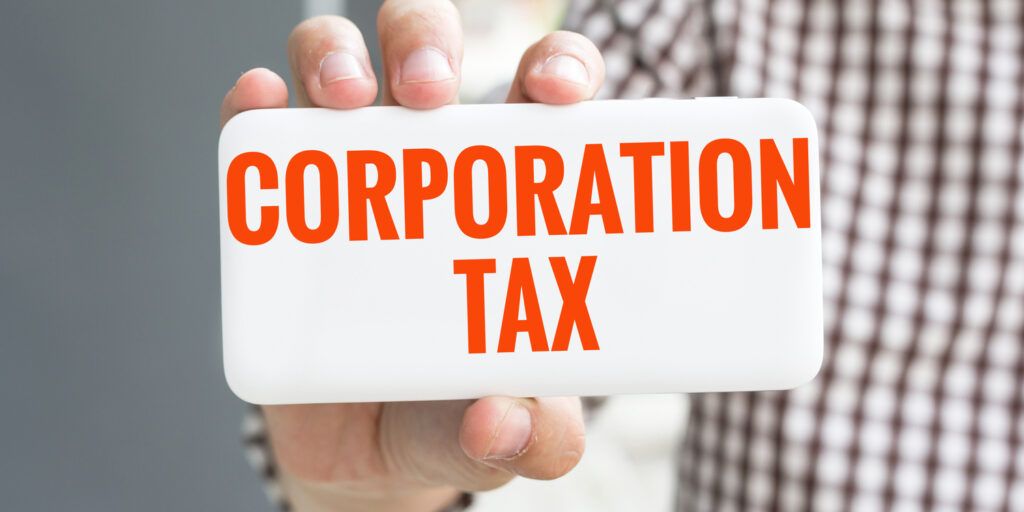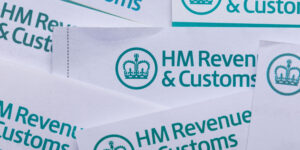If your company is trading, you must register for Corporation Tax and file a Company Tax Return with HMRC every year, even if you make a loss or don’t have any tax to pay. The filing deadline is 12 months after the end of your company’s accounting period for Corporation Tax.
In this post, we explain what a Company Tax Return includes, how and when to file one with HMRC, and the penalties you could face if you deliver your tax return late.
What is a Company Tax Return?
A Company Tax Return is a collection of financial documentation that reports income and expenses, profit or loss for Corporation Tax purposes, Corporation Tax liability, and other relevant financial information to HMRC – the UK’s tax authority. To prepare a Company Tax Return, you must include:
- a properly completed form CT600 and any relevant supplementary pages
- full annual accounts, including the directors’ and auditor’s reports
- computations showing how the entries in CT600 and supplementary pages were derived from the figures in the annual accounts
- any additional information relevant to the company’s tax liability
By law, you must deliver this financial documentation to HMRC if you receive a ‘Notice to deliver a Company Tax Return’.
Company Tax Returns need only be filed by companies. If you are self employed and run your business as a sole trader or through a partnership, you must file annual Self Assessment tax returns instead.
HMRC’s Company Tax Return Guidance provides detailed information that will help you to complete your Company Tax Return. However, it can be complex, so you may wish to speak to an accountant or professional tax adviser if you are unsure of any aspects.
Do I need to register my company for Corporation Tax?
You will need to register your company for Corporation Tax online when you start to do business. ‘Doing business’ includes:
- carrying on a trade or professional activity
- buying/selling goods or services with the intention of making a profit
- employing people
- advertising
- renting a property for commercial purposes
- managing investments
- earning interest
When any such activities take place, your company is deemed ‘active’ for Corporation Tax purposes and is legally required to register within three months.
- An introduction to Corporation Tax
- How to register for tax after forming a company
- 10 ways to reduce your Corporation Tax bill
You will work out how much (if any) Corporation Tax your company owes when you complete a Company Tax Return. The deadline for paying your tax bill is 9 months and 1 day after the end of your Corporation Tax accounting period.
How and when to file a Company Tax Return
Unless your company is exempt from online filing, you must deliver your Company Tax Returns electronically. You can do this using either HMRC’s Corporation Tax online filing service, or proprietary third-party software provided by a commercial company.
When you prepare your tax return, you will use the information in your annual accounts to work out your company’s:
- profit or loss for Corporation Tax
- Corporation Tax bill
You can appoint an accountant to prepare and deliver your Company Tax Return, or you can do it yourself if you feel able.
Normally, your Company Tax Return should be delivered no later than 12 months after the end of your accounting period for Corporation Tax. HMRC will send a ‘Notice to deliver a Company Tax Return’ to your registered office address. Your filing deadline will be included in this letter.
Your accounting period for Corporation Tax
Your Corporation Tax accounting period is the time covered by your tax return. Normally, it will be 12 months long and match the financial year covered in your company’s annual accounts.
Your accounting period can be shorter than 12 months, but it cannot be longer. However, in your first year of business, you may find that your annual accounts cover a period of more than 12 months.
In such instances, you will need to file two Company Tax Returns. One for the first 12 months, and another for the remaining period of time covered by the annual accounts.
Penalties for filing your Company Tax Return late
If your tax return is delivered late, HMRC can impose substantial financial penalties:
- 1 day late – £100 automatic fine
- 3 months late – An additional £100 fine
- 6 months late – 10% of your outstanding tax bill
- 12 months late – An additional 10% of your outstanding tax bill
If you file your tax return late for 3 consecutive years, the £100 penalties will automatically increase to £500 each.
HMRC can also charge a penalty if your Company Tax Return is inaccurate. Moreover, if you enter false information or conceal any profits or tax liability, your company and its directors could be prosecuted.
So there you have it…
We’ve provided a brief overview of the Company Tax Return, when to register for Corporation Tax, how and when to file your tax return, and the late filing penalties imposed by HMRC.
If you have any questions about your limited company’s tax and filing obligations, please contact us or leave a comment below.
Please note that the information provided in this article is for general informational purposes only and does not constitute legal, tax, or professional advice. While our aim is that the content is accurate and up to date, it should not be relied upon as a substitute for tailored advice from qualified professionals. We strongly recommend that you seek independent legal and tax advice specific to your circumstances before acting on any information contained in this article. We accept no responsibility or liability for any loss or damage that may result from your reliance on the information provided in this article. Use of the information contained in this article is entirely at your own risk.








Join The Discussion
Comments (5)
Thanks for making it so easy to understand
Thank you for taking the time to leave such positive feedback, it’s much appreciated!
Best regards,
The 1st Formations Team
Great Content as ever
Very useful, thank you!
Thanks for the kind words!
Best regards,
The 1st Formations Team